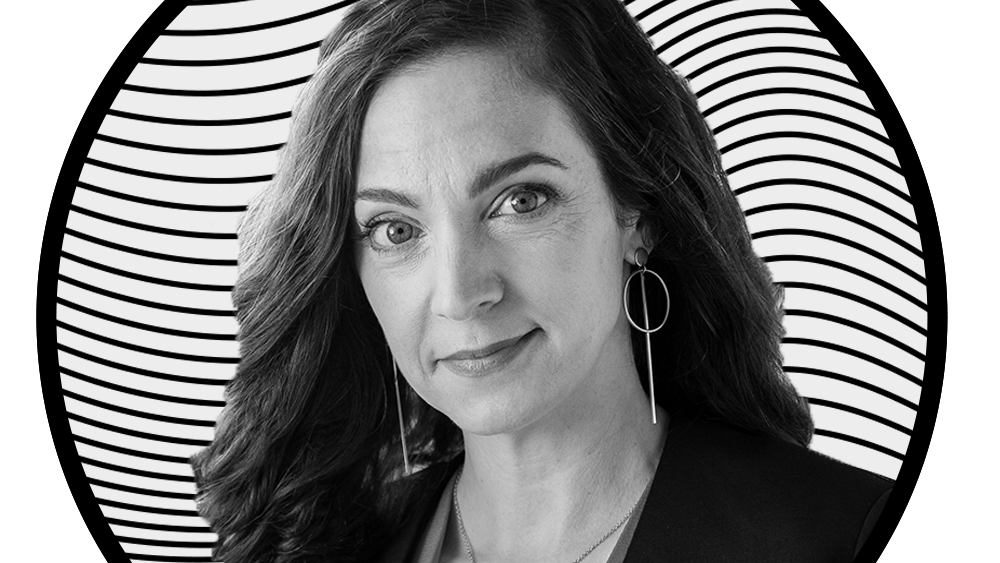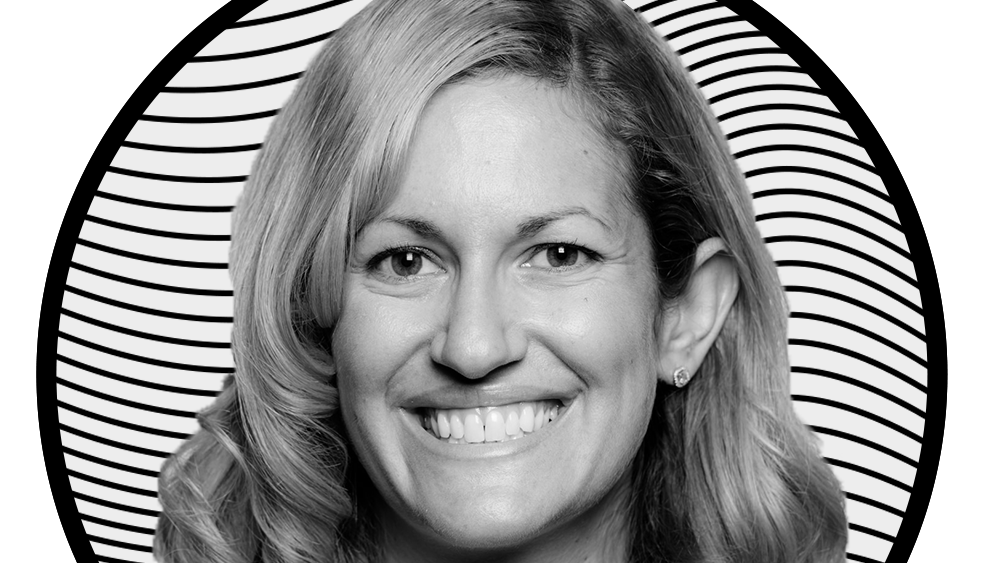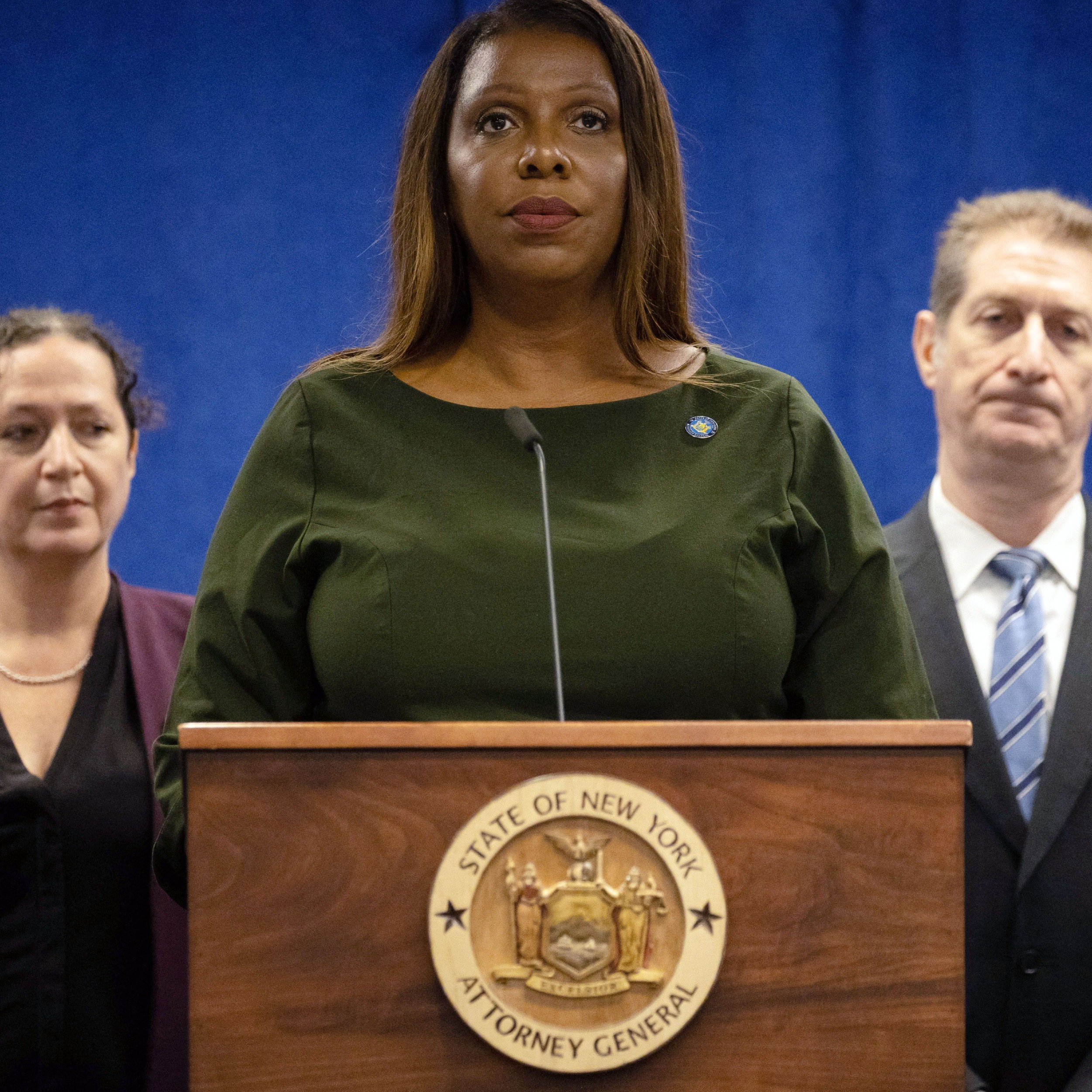The Ecowarriors Greenifying Big Tech
Corporate sustainability officers are business’s latest climate-change weapon.

Once upon a time, common wisdom held that going green was bad for business; climate action and economic growth could not possibly go hand in hand. And once upon a time, that seemed to be true; carbon emissions dipped and surged along with the economy for decades. Today, with innovations in recycling and enough clean energy to support and help offset the trucking, air travel, and manufacturing that accompany economic growth, we know that businesses can do right by both shareholders and the planet. In fact, as a recent report by the Global Commission on the Economy and Climate tells us, aggressive climate action could deliver $26 trillion or more in economic benefits through 2030. As businesses embrace a greener economy, women are leading the way.
Globally, they now hold the majority of leadership roles in corporate responsibility and sustainability divisions. This can’t be an accident; a growing wealth of research shows that businesses with more women in leadership roles more successfully shift focus from maximizing short-term profits to achieving longer-term goals of growth and environmental sustainability. And the bigger the company, the more this can matter. While we often associate sustainability with hipster startups hawking felt sneakers and other eco-friendly products, the most impactful changes are happening precisely where we don’t often expect them—at massive global corporations.
Sarah Chandler, the senior director of operations and environmental issues at Apple, is one such corporate good citizen leading the charge. She knew she wanted to work for planet Earth as a high schooler in the early ’90s. Growing up on a maple-syrup farm in western Massachusetts, she saw how the weather affected production.“I definitely give my upbringing credit for my professional aspirations,” she says.

Sarah Chandler, senior director of operations and environmental issues at Apple.
Chandler, who holds an MBA from Stanford University, started at Apple as an intern. It was 2006, and Greenpeace gave Apple a rating of 2.7 out of 10 for sustainability, citing the company’s use of toxic chemicals, poor recycling program, and lack of transparency. But in subsequent years, particularly under the leadership of Tim Cook, who became CEO in 2011, Apple has righted its course, reducing carbon emissions by 64 percent—even while the company’s energy use has tripled. Today, 100 percent of Apple’s operations—from data centers to offices and retail stores—are powered solely by renewable energy. And here’s where that ripple effect kicks in: Chandler and her team have successfully lobbied 44 of Apple’s suppliers to commit to using 100 percent renewable energy for their Apple load as well.
Still, there’s much work to be done. Apple sent 36.5 million pounds of waste to landfills in 2018, not to mention the hazardous manufacturing waste landfills wouldn’t take (which nearly doubled from 2017 to 2018). Given increasing demand, the company is searching for innovative ways to minimize this waste. One such project: a pair of Apple robots (both named Daisy—one in Austin, the other in the Netherlands) that disassembled and recycled a million spent iPhones last year. This recycling, along with the refurbishment of nearly eight million devices in 2018, helped divert more than 150 million pounds of materials from landfills. “You can probably hear the pride in my voice,” says Chandler of the duo.
Like Apple’s Chandler, Google’s sustainability officer, Kate Brandt, tackled environmental issues early in her career. In 2014, she was named the United States’ first federal chief sustainability officer. A year later, Brandt moved to Google. In D.C., she saw how much of an impact she could have in the private sector. Auspiciously, on her first day on the job in 2015, Google joined with President Obama and other businesses to launch the American Business Act on Climate Pledge, a commitment to support the larger Paris Climate Agreement’s goals for a low-carbon future, which Brandt had worked on at the White House.

Kate Brandt, sustainability officer for Google.
Google has been carbon neutral in its operations—using as much renewable energy as possible and purchasing carbon offsets to counter the rest—since 2007. But those offsets don’t technically negate the massive amount of energy needed to power an estimated 5.5 billion Google searches each day and over 500 hours of YouTube video uploads every minute. No wonder one of Brandt’s most urgent initiatives at Google has been to drive a “circular economy” that eliminates waste and pollution through the use of renewable materials across the company’s operations. “Our whole economy since the industrial revolution has been built on this notion of taking something out of the ground, manufacturing it into a product, and eventually throwing it away,” she says. That model won’t serve the future, so Google now resells millions of used components, helping to save the company millions of dollars and keeping materials out of landfills.
Stay In The Know
Get exclusive access to fashion and beauty trends, hot-off-the-press celebrity news, and more.
Brandt’s strategy is not just to build sustainability into the company’s internal practices and products but also to enable the public to make sustainable-living choices with tools like Google Maps and Project Sunroof. “There’s a huge sense of urgency. Science tells us we have 10 more years to turn this all around,” says Brandt, citing a 2018 United Nations report on climate change. That urgency grows more acute with every environmental protection the Trump administration rescinds—from drilling and emissions regulations to energy-efficiency standards.
Google and Apple took a stand in 2017, soon after President Trump signaled his intention to withdraw the United States from the Paris Climate Agreement. Along with leaders from nearly 4,000 public and private entities, they signed the “We Are Still In” Declaration, vowing a global effort to hold warming to under 2 degrees Celsius, with or without federal support.

Kara Hurst, head of worldwide sustainability, Amazon.
Amazon’s CEO, Jeff Bezos, also signed on. Last fall, possibly under pressure from nearly 2,000 workers united as Amazon Employees for Climate Justice, he committed to a plan to meet the Paris agreement goals—10 years ahead of schedule. [An Amazon spokesperson says The Climate Pledge has been in the works for many years and that the company has thousands of people working on sustainability programs around the globe.] And in February, Bezos announced he would be dedicating $10 billion of his personal wealth to addressing the climate crisis. A key player in the development and execution of the Climate Pledge, which commits the company to reaching net-zero carbon through innovations and investments by 2040, was Kara Hurst, Amazon’s head of worldwide sustainability.
“I completely geek out on solving this challenge,” says Hurst, a former CEO of the Sustainability Consortium.“In small organizations, you don’t have dissimilar problems, but the scale of the impact of your decisions maybe much less.” Hurst is helping Amazon—a company widely criticized for adding congestion and heat-trapping gases to our roads and skies and filling landfills with shipping materials—to solve challenges including how to choose the best ways to save energy and resources. With little time to waste to meet such ambitious goals, Hurst’s team has pushed such initiatives as the purchase of 100,000 electric delivery vans. The company also launched a lightweight recyclable mailer, more than 100 million of which have been sent to customers, and overall packaging reduction programs have eliminated the equivalent of more than 1.4 billion shipping boxes. Additionally, as part of the Climate Pledge, Amazon is working towards powering its operations using 80 percent renewable energy by 2024, and 100 percent by 2030.
Hurst’s goal is not only to help Amazon become greener but also to share the tenets of its success with its many thousands of vendors. “If Amazon can’t mechanize a strategy for others along the line to replicate,” says Hurst, “it stops with us. And that’s not a success.”
Clarification: The print version of this story included unclear information about Tim Cook's tenure at Apple, and did not include a statement from Amazon regarding The Climate Pledge.
Correction: The print version of this story incorrectly stated the number of shipping boxes eliminated by Amazon's packaging reduction programs.
This story originally appeared in the April 2020 issue of Marie Claire.
Related Stories


-
 Taylor Townsend Sea Mosses Her Way to Better Wellness
Taylor Townsend Sea Mosses Her Way to Better WellnessThe tennis star serves up self-care between sets.
By Siena Gagliano
-
 What to Know About the Cast of 'Resident Playbook,' Which Is Sure to Be Your Next Medical Drama Obsession
What to Know About the Cast of 'Resident Playbook,' Which Is Sure to Be Your Next Medical Drama ObsessionThe spinoff of the hit K-drama 'Hospital Playlist' features several young actors as first-year OB-GYN residents.
By Quinci LeGardye
-
 Duchess Sophie Stepped Up to Represent King Charles at Event Amid Calls for King Charles to "Slow Down"
Duchess Sophie Stepped Up to Represent King Charles at Event Amid Calls for King Charles to "Slow Down"The Duchess of Edinburgh filled in for The King at the Royal Military Academy Sandhurst.
By Kristin Contino
-
 For Teachers, Going to Work Can Mean Life or Death
For Teachers, Going to Work Can Mean Life or DeathStefanie Minguell, a COVID survivor and second grade teacher in Florida's Broward County, almost died of COVID-19 and is immunocomprised. When she teaches in the classroom, she’s forced to choose between her health and her students.
By Megan DiTrolio
-
 Who Is Gwen Berry, the Athlete, Activist, and Olympian?
Who Is Gwen Berry, the Athlete, Activist, and Olympian?Features "I’m extremely American because I’ll fight for people here, because we’ve endured it here..."
By Megan DiTrolio
-
 It’s Time to Give Domestic Workers the Protections They Deserve
It’s Time to Give Domestic Workers the Protections They DeserveThe National Domestic Workers Bill of Rights, reintroduced today, would establish a new set of standards for the people who work in our homes and take a vital step towards racial and gender equity.
By Ai-jen Poo
-
 Grand New Party?
Grand New Party?Moderates are appalled—and fleeing—but the Republican base is more besotted with Trump than ever. Six conservative female leaders chart a path forward.
By Megan DiTrolio and Maria Ricapito
-
 Read Kamala Harris's Inauguration Speech
Read Kamala Harris's Inauguration SpeechKamala Harris delivered a powerful and moving speech on the evening of the 2021 inauguration. Read the full transcript of the speech here.
By Megan DiTrolio
-
 Attorney General Letitia James Takes on the World
Attorney General Letitia James Takes on the WorldWhether you're the N.R.A. or Dunkin' Donuts or a Trump, break the law in the great state of New York and she—and the office she represents—will come at you.
By Maria Ricapito
-
 These Indigenous Reindeer Herders Are Fighting for the Right to Their Ancestral Lands
These Indigenous Reindeer Herders Are Fighting for the Right to Their Ancestral LandsIn the face of decades of cultural erasure, the Sámi women are striving to keep their culture, language, and livelihoods alive.
By Mara Santilli
-
 No Matter the Outcome, Election Day 2020 Gave Me Hope
No Matter the Outcome, Election Day 2020 Gave Me HopeMarie Claire contributing editor Chloe Angyal spent the day registering new voters. Here's why what she experienced is a good thing for all Americans.
By Chloe Angyal